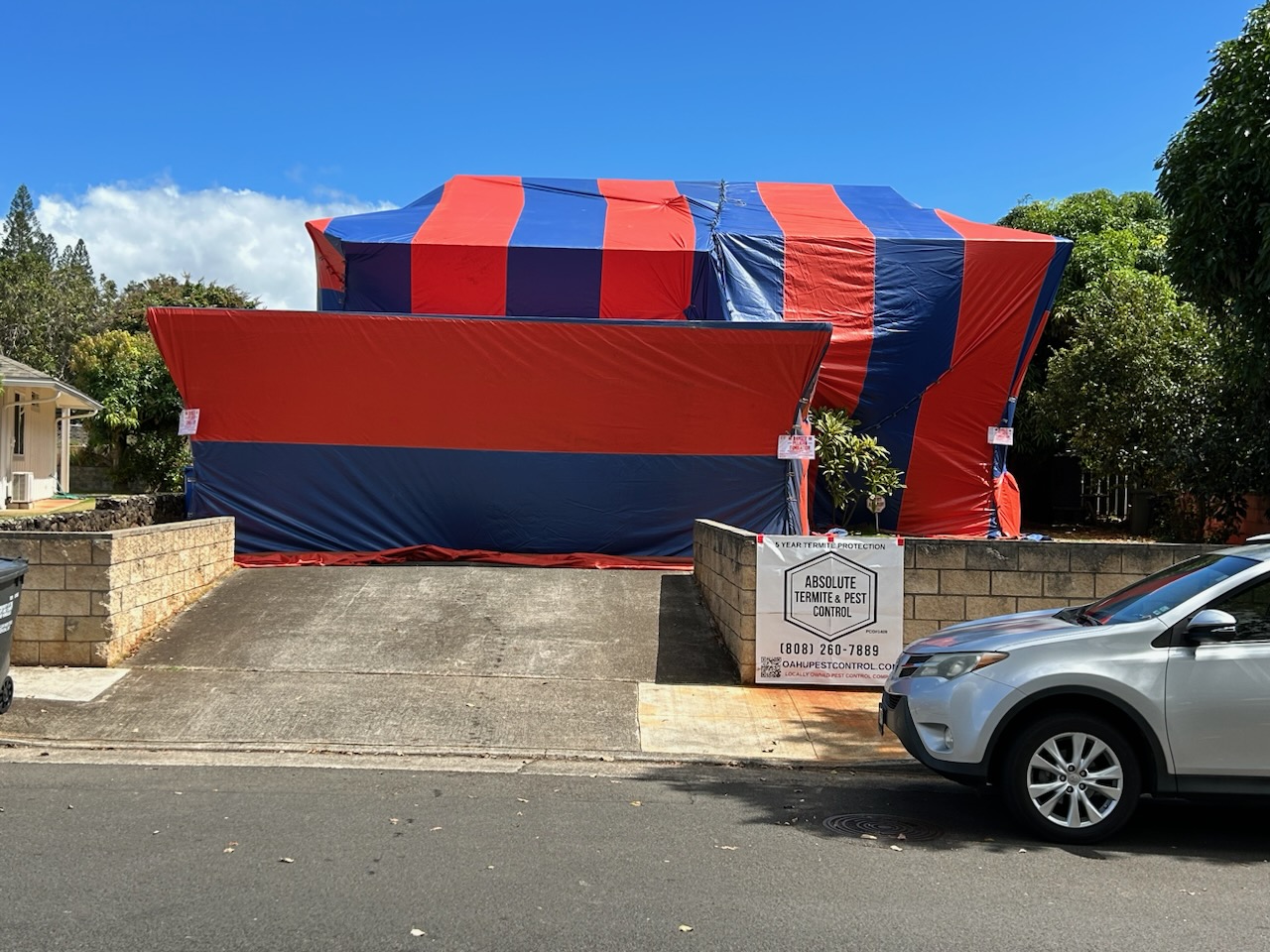How Does an Infestation Affect Your Home and What You Can Do About It
- Absolute Pest Control Hawaii PCO#1409
- Apr 2, 2025
- 4 min read
An infestation can turn your home into a stressful environment. Common pests like termites, rodents, and insects not only threaten your property but also your peace of mind. A recent survey indicated that 78% of homeowners experience anxiety due to pest problems, making it crucial to identify the impact of infestations and learn effective strategies to combat them.
Physical Damage to the Structure
Infestations can cause severe physical damage to your home. Termites are notorious for their destructive ability, eating through wooden structures. For instance, termites cause about $5 billion in property damage in the U.S. annually. Over time, this damage can lead to costly repairs or even dangerous situations when structural integrity is compromised.
Rodents, on the other hand, do more than just sneak around. They can chew through wiring and insulation, posing fire hazards and increasing your electricity bills due to poor insulation. For example, a rat can consume up to 1/3 of an ounce of food per day, leading to a potential loss of hundreds of dollars in food and property damage.
To address these issues before they escalate, it's wise to schedule regular home inspections. If you suspect an infestation, contact a professional pest control service to evaluate the situation and recommend effective solutions.
Health Risks
The health risks associated with infestations are substantial and should not be ignored. Pests like cockroaches and rodents are recognized for spreading serious health concerns. For example, rodent droppings can trigger allergies in 20-50% of asthmatic kids and can also carry diseases such as hantavirus pulmonary syndrome, which has a mortality rate of about 38%.
In addition, insects such as bedbugs and fleas lead to more than just itchy bites. They can cause discomfort, resulting in sleepless nights that can diminish overall quality of life. Each bedbug can bite multiple times in one night, leading to persistent skin irritation.
Maintaining cleanliness and regular pest control are essential strategies to minimize these health risks. Make it a habit to clean areas thoroughly and eliminate food debris that might attract pests.
Impact on Property Value
An infestation can significantly harm your home's value. A recent study revealed that homes with pest problems can see price reductions of up to 10% compared to comparable homes without infestations. Even after an infestation has been resolved, the lingering stigma can deter potential buyers.
Visible signs of pest damage, such as chewed wiring or insect nests, can make potential buyers hesitant, possibly leading to lower offers or longer time on the market. Transparency about any pest issues when selling can help build trust with buyers.
Working with professional pest control services to eradicate infestations can make your home more attractive to potential buyers and help maintain its market value.
Emotional Stress and Anxiety
The emotional toll of an infestation can be significant. The thought of pests invading your living space can create feelings of unease. A study showed that 60% of homeowners reported losing sleep due to pest-related worries.
Families with children or pets often face increased anxiety over potential health risks associated with pests. Knowing that an infestation is present can disrupt daily routines, causing stress and discomfort.
To lessen this anxiety, create a comprehensive plan for pest control. Routine inspections and preventive measures, including sealing entry points and maintaining cleanliness, can offer peace of mind and help protect your loved ones.
Environmental Impact
Certain pest control methods may have adverse effects on the environment. Traditional chemical sprays can harm beneficial insects and disrupt local ecosystems. Moreover, chemical runoff can contaminate local water sources, posing risks to both plants and wildlife.
Opting for environmentally friendly pest control options, such as Integrated Pest Management (IPM), can minimize these negative impacts. IPM focuses on long-term prevention and uses techniques like habitat manipulation and natural predators, providing effective pest control without the harsh consequences.
Prevention Strategies
Preventing an infestation can often save time and money compared to tackling one after it occurs. Here are a few key strategies to protect your home:
Regular Inspections: Schedule inspections with pest control professionals at least once a year. This can uncover problems early before they escalate.
Seal Entry Points: Check your home for cracks and holes, sealing them off effectively. This simple step can deny pests easy entry.
Maintain Cleanliness: Develop a regular cleaning routine to keep your home tidy. Remove food particles and clutter which can attract pests.
Manage Landscaping: Keep trees and shrubs trimmed away from your home to reduce pathways for pests.
By taking these proactive measures, you can significantly lessen the chances of an infestation.
When to Seek Professional Help
Knowing when to reach out for professional help is crucial for effective pest management. If you observe signs of significant damage, such as droppings, nests, or compromised structures, do not wait. Calling in a pest control expert can prevent further issues.
If your DIY methods are not producing results, particularly in widespread infestations, professional assistance will ensure thorough and effective pest management. Using expert services can save you time and money in the long run, particularly when faced with persistent pest issues.
Final Thoughts
An infestation can disrupt your home in many ways, from structural damage and health risks to emotional distress and diminished property value. Being aware of these impacts can empower homeowners to take preventive actions against pests.
Implementing proactive measures like regular inspections, maintaining cleanliness, and involving professional pest control services when needed can significantly enhance your living environment. With the right strategies in place, you can create a safer, healthier, and more enjoyable home.












Comments